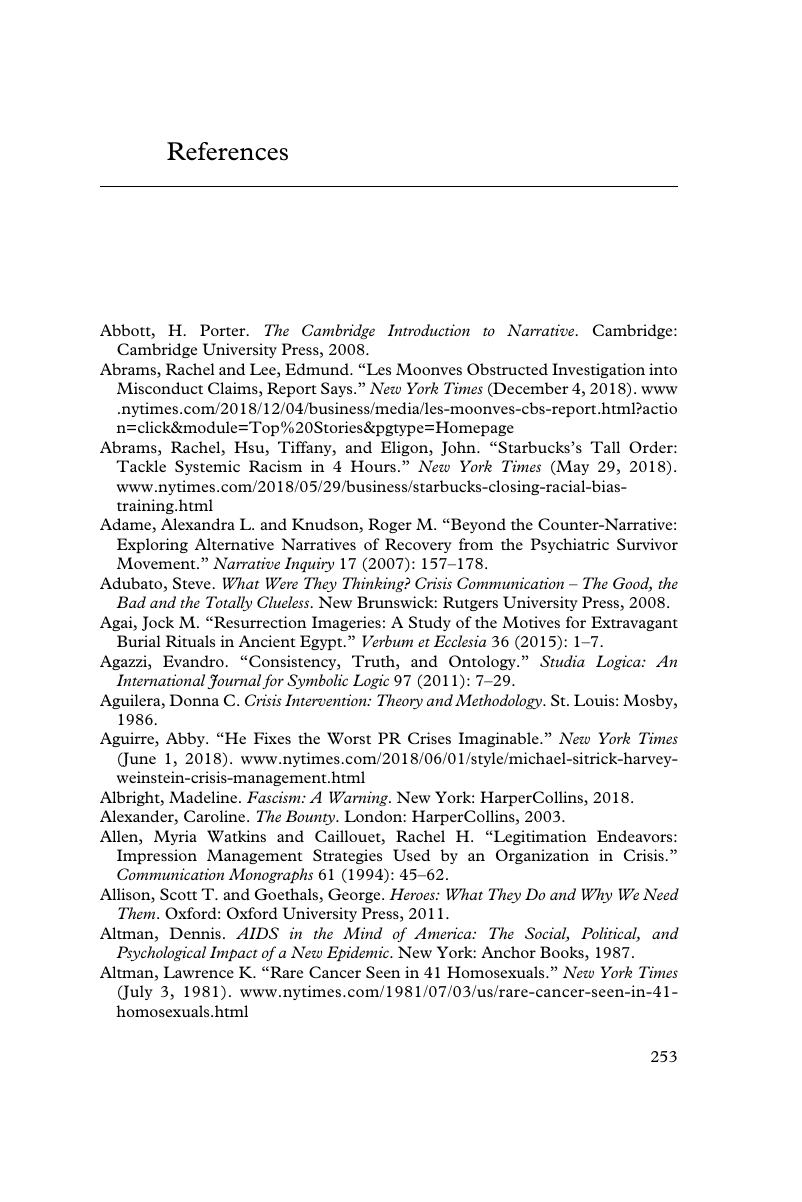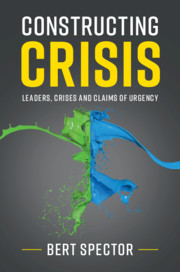Book contents
- Constructing Crisis
- Constructing Crisis
- Copyright page
- Dedication
- Contents
- Tables
- Preface
- 1 Undertaking a New Interpretive Effort
- 2 Crisis as a Reification of Urgency
- 3 Advancing the Crisis-as-Event Model
- 4 Problems, Crises, and Contextual Constructionism
- 5 An Objective Description and a Subjective Uh-Oh!
- 6 Believing Claims of Urgency – Or Not
- 7 The Power of a Good (Crisis) Narrative
- 8 To Create Such a Crisis, to Foster Such a Tension
- 9 Beyond Forged-in-Crisis Leadership
- 10 So What?
- References
- Index
- References
References
Published online by Cambridge University Press: 23 August 2019
- Constructing Crisis
- Constructing Crisis
- Copyright page
- Dedication
- Contents
- Tables
- Preface
- 1 Undertaking a New Interpretive Effort
- 2 Crisis as a Reification of Urgency
- 3 Advancing the Crisis-as-Event Model
- 4 Problems, Crises, and Contextual Constructionism
- 5 An Objective Description and a Subjective Uh-Oh!
- 6 Believing Claims of Urgency – Or Not
- 7 The Power of a Good (Crisis) Narrative
- 8 To Create Such a Crisis, to Foster Such a Tension
- 9 Beyond Forged-in-Crisis Leadership
- 10 So What?
- References
- Index
- References
Summary

- Type
- Chapter
- Information
- Constructing CrisisLeaders, Crises and Claims of Urgency, pp. 253 - 291Publisher: Cambridge University PressPrint publication year: 2019



